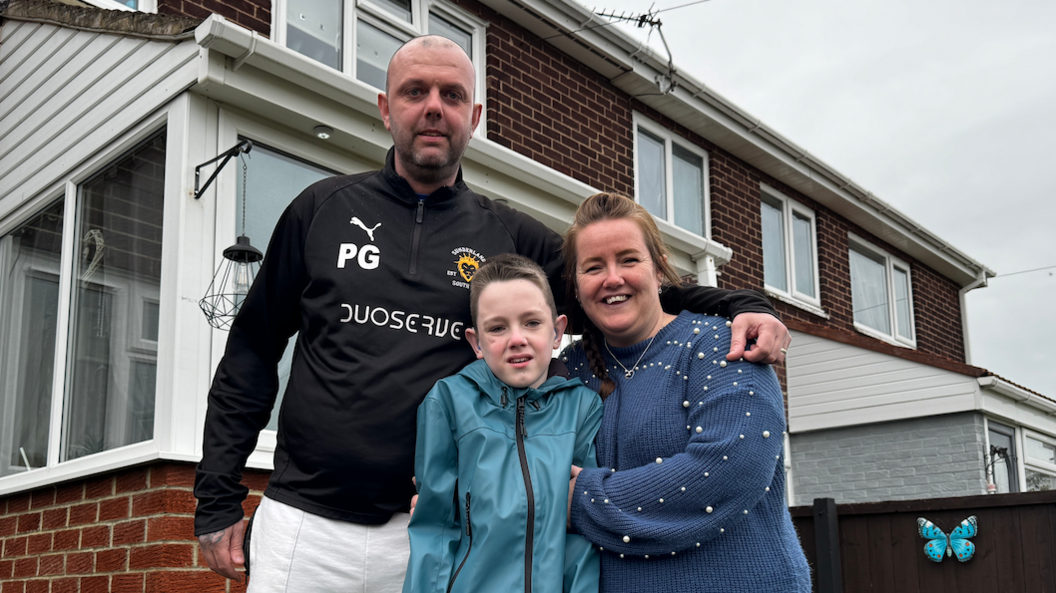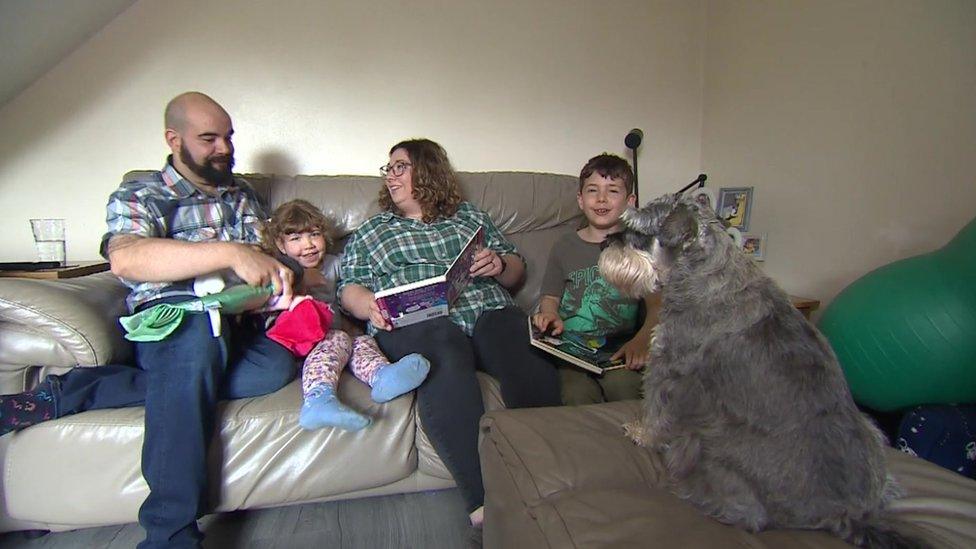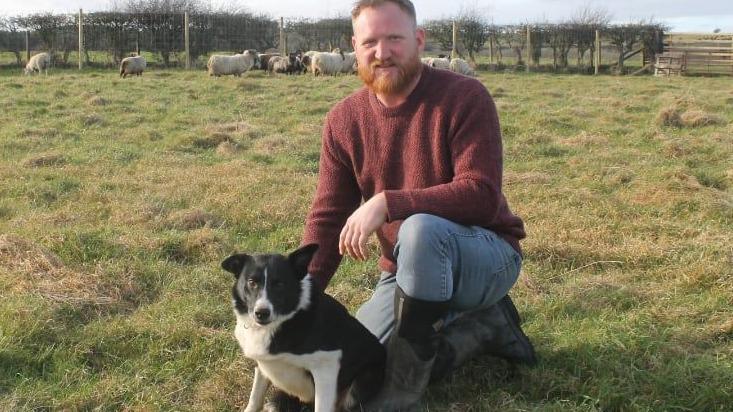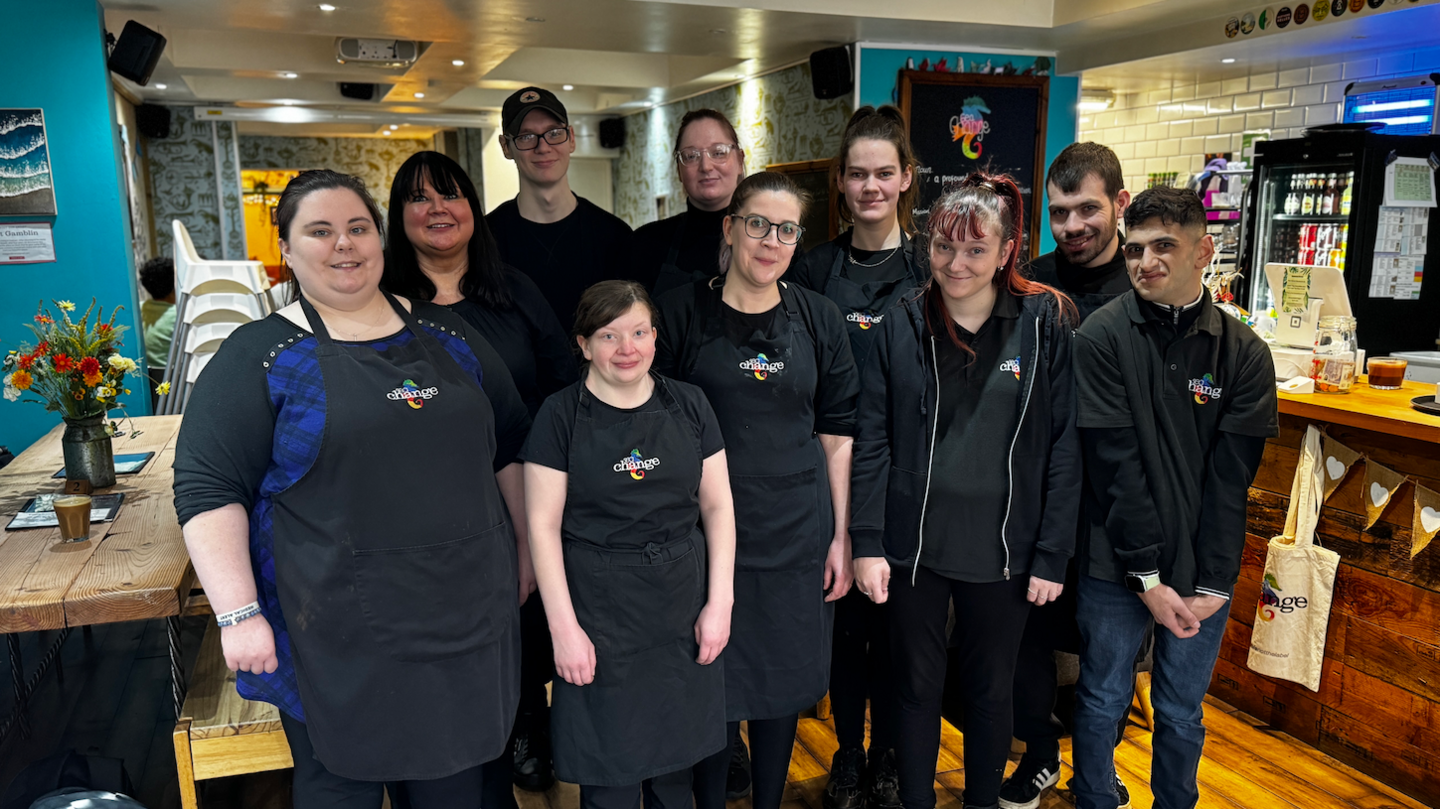Parents fear son 'won't cope' in mainstream school

Joseph had to undergo several surgeries and has learning difficulties
- Published
A family say their disabled son will be “left behind” if he is forced to attend a mainstream school.
Joseph, 11, from Sunderland, has autism, learning difficulties and deafness, and is due to attend secondary school in September.
However, parents Paul and Gemma Gibson told the BBC they had so far been unable to secure a place at a specialist school in the city.
Sunderland City Council said places for pupils with "special educational needs" were allocated according to their requirements.
It comes as campaigners say there are a lack of "appropriate school places" for young people with autism and have called for government reform.
'Won't cope'
"It's no good putting him into a mainstream school, he needs to be on an amended curriculum," Mr Gibson said.
"He won't be able to cope with the work of a Year 7 child."
He said his son had been "put on a list" at one secondary school in the city, which he claims had since told him there was no provision for those with deafness.
Mr Gibson said Joseph had also been placed on another list for a mainstream school several miles away, which offers additional support, but said there was no guarantee he would get a place in time for this year's term.

The 11-year-old was born three months early
Joseph was born three months prematurely and suffered damage to the tissues of his brain.
Two weeks after his birth, he had to undergo major surgery on his heart and has since had a further nine operations.
He is now at risk of seizures and is assessed to be around four years behind children his age.
Mrs Gibson said she felt as though her son was "not disabled enough" to secure a place at a specialist school.
She said: "It's stressful, constant worry.
"All you want is the best for your son, you just want him to be in a place where you know he will get the best care, the best learning which is what he needs."
Widespread problem
The National Autistic Society said the problems faced in Sunderland were a nationwide issue.
Jake Runacres, from the organisation, said it "often" hears from parents "who aren't getting the right support for their child".
He said that was "either because they can't get a specialist school place or because they can't get the support they need in mainstream schools".
'According to needs'
In a joint statement, Sunderland City Council and Together for Children, which runs child services on its behalf, said it would not comment on individual cases.
However "special educational needs are allocated according to needs identified in an Education Health Care Plan," they said.
A local authority spokesperson said once this plan is "finalised" parents and carers are "fully advised of their options in terms of mediation and appeal".
The Department for Education said funding for young people with complex needs would increase to more than £10.5bn this year.
It said: “We want all children to have the chance to meet their potential, and councils are responsible for making sure there is appropriate education for all children in their area."
Follow BBC Sunderland on X (formerly Twitter), external, Facebook, external and Instagram, external. Send your story ideas to northeastandcumbria@bbc.co.uk.
Related topics
More stories from BBC North East and Cumbria
- Published6 August 2023

- Published21 February 2024

- Published9 February 2024
